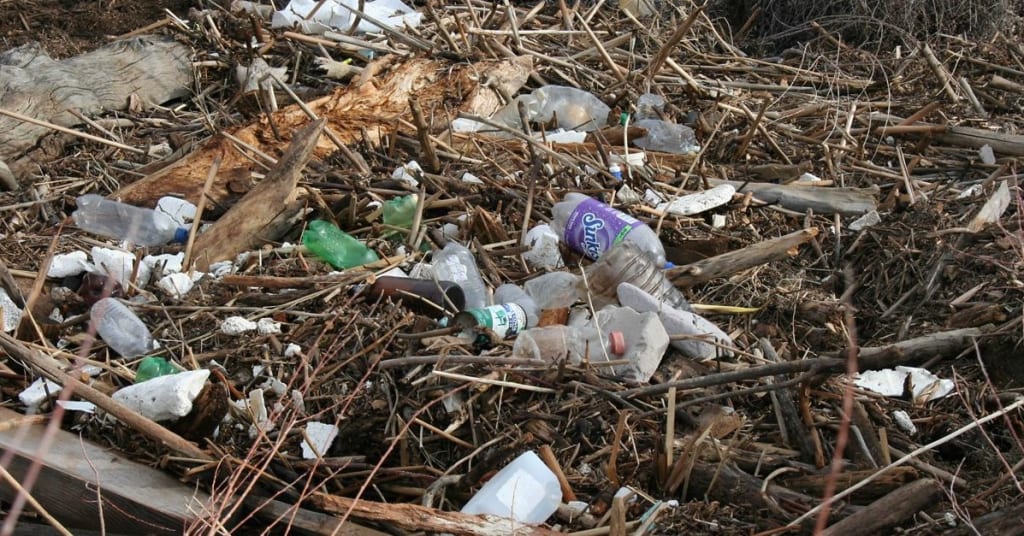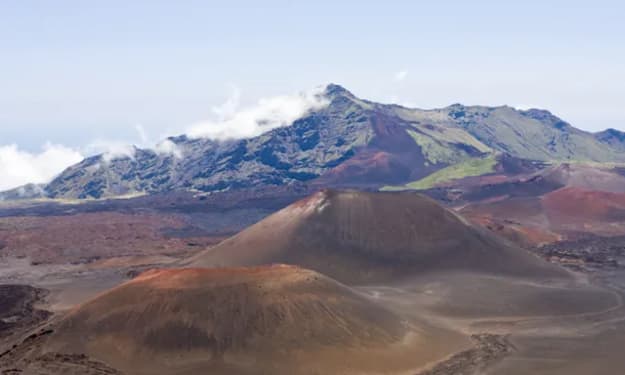What if we produced less stuff?
Stopped making so much stuff

Could you provide a number in response to the question, "How much items do you have?" Consider each article of clothes, kitchen appliances, and pieces of furniture. every appliance, cup, and pair of shoes. The rest follows. That isn't easy unless you're an extreme minimalist. Because the majority of us own a lot of things. More has provided us with great comfort and choice but at a hefty cost. such as increased pollution, resource depletion, and carbon emissions. The planet is becoming overburdened by our propensity to produce and consume more things. Everyone talks about preventing a climate catastrophe, but will maintaining the status quo while utilizing renewable energy sources and purchasing electric vehicles actually help? More and more people are refusing. They urge us to alter how we manage our economies fundamentally and, consequently, how we live. Some refer to it as degrowth. This entails producing less harmful material for the environment while increasing investment in beneficial components for human health. Can less actually be more, then? Let's investigate.
Countries have been evaluated for many years based on the expansion of their GDP. Gross Domestic Product is that. The more the output of products and services, the greater the GDP, and the colder the nation. Everyone is excited when the GDP increases and terrified when it decreases. Some of the factors considered by GDP are quite beneficial to us. as well as houses, schools, and hospitals. However, the GDP also counts negative events like earthquakes and hurricane recovery as good economic indicators. It ignores unpaid domestic and carer duties, educational opportunities, and psychological health. Things that have a genuine impact on our welfare but are less obvious. For instance, it neglects to consider the pollution and ecological destruction our developing economic systems produce. "More raw materials must continue to be extracted and circulate in the economy in order to maintain GDP growth. On a planet with finite resources, this is not sustainable. At Lancaster University in the UK, Kai Heron gives lectures on political ecology. "The notion that we can simply have an unending flow of materials produce more things repeatedly and accumulate more materials. We can continue digging up resources from the ground and dumping them in landfills.
Degrowth is a concept that is relevant in this situation. André Gorz, an Austrian-French social philosopher who questioned whether it was beneficial to always produce more goods, is credited with coining the phrase "degrowth." The Massachusetts Institute of Technology researchers released a study titled "The Limits of Growth." According to this meticulous projection, if growth is not stopped, civilization will end by the year 2072. It's enough to say that it wasn't well received. Even the scholarly publication Nature referred to it as having "a whiff of doomsday." In the 2000s, degrowth discussions resurfaced as statistics revealed how irreparably harmful our planet was becoming. It should be "widely and thoroughly considered," according to a new report published in Nature, which scorned degrowth in the 1970s. Additionally, the phrase has now appeared in the most recent IPCC report on how to keep global warming to 1.5 degrees Celsius.
"Decoupling" is a degrowth strategy that has been "widely considered," allowing you to maintain economic growth while decreasing carbon emissions. "Where I live in the UK, it's extremely proud of itself, because it asserts that it's managed to successfully decarbonize its economy while GDP - it's not doing well -, but GDP is growing slowly, while our emissions seem to be going down," says the author. Surprisingly, particularly industrialized economies have managed to do it, for instance, by switching to renewable energy sources. like Denmark, which increased GDP per capita by 16% while reducing its consumption-based emissions by 35% between 2000 and 2019. Germany grew by 26% during the same period while reducing carbon emissions per person by 24%. The United States itself followed suit. This is fantastic and unquestionably a first step, but the issue is that decoupling only cares about CO2.Not just one but numerous ecological crises exist now. It involves more than just emissions from fossil fuels. Therefore, we'll leave out ecological harm and biodiversity loss if we merely mention decarbonization. Even worse than the EU, the UK has experienced some of the greatest losses to biodiversity. This does not resolve that issue.
Next, what? The issue is that even people who endorse the principles of degrowth believe the term is problematic. "The term degrowth has a negative connotation, which is why I don't like it," Professor of Sociology at Boston College Juliet Schor focuses on the connection between work, the economy, and consumption. The reduction of the material inputs into economic activity is crucial. Degrowth has a sinister sound as if it wants to bring society back to the Middle Ages. However, it merely entails reducing the least sustainable industries. like mass-produced dairy products, rapid fashion, automobiles, and aircraft. Or extending the shelf life of the appliances we depend on, such as phones, refrigerators, and washing machines. Repairing something rather than replacing it as soon as it breaks. Therefore, the goal should be to promote growth in industries that benefit society rather than just halt it. as in developing green jobs. Workers are trained to install renewable energy, build insulation, and ecological restoration, and spending money on services and public transport. Four-day workweeks and more time to care for others and other activities that advance their welfare may also be included. "Households with more time—or wealth, if you prefer—can do things in more sustainable ways because they have fewer obligations and more free time." "It's a strong tailwind for reducing carbon emissions, improving society, and reestablishing social cohesion.
Doughnut economics is a more gentle kind of degrowth. Sectors are permitted to expand, but only in a "sweet spot" where social demands are being addressed and it is environmentally viable, like the ones in this green region. If the economy expands by more than that, environmental damage sets in. The doughnut continues to adhere to the degrowth idea of reducing damaging activity. But is that more than just fantasy? Could this new growth strategy truly make our lives worse? The discussion over degrowth centres on this point: Would it undo the advancements made by humans? A high GDP is linked to, among other things, many aspects of contemporary life, such as living longer and having reduced child mortality rates. Degrowth, according to economists who support the current system, could lead to widespread job loss, mortgage defaults, and firm closures more quickly. that it would drive us all into a protracted downturn. limiting the development of research and innovation, which are essential for creating greener and more efficient technology. The issue is that active degrowth hasn't occurred anyplace yet, so no one is certain if it will. How do you create a world where wealthy nations don't essentially slam the doors behind themselves and declare, "We're going to slow down our growth a little, and we're not going to allow you to catch up to where we are"? Zeke Hausfather here. He studies the climate and analyses energy systems. "That is a challenge, and many of the solutions around that involve large-scale redistribution of wealth and resources between countries, which might be possible in a perfect world but in the real world is very politically challenging." Degrowth advocates advocate for cancelling the debts of low- and middle-income nations so that they can concentrate their expenditure on public services. "Key things for the Global South are technology transfer, to leapfrog dirty technologies, particularly to get the latest generation of renewable technologies to Global South countries for their energy needs," says the initiative, which aims to level the playing field. The second is money, specifically climate finance, which will enable that as well as finance other initiatives aimed at reducing poverty. Advocates contend that by reducing economic growth, more people's needs may actually be met. "Working-class individuals, racialized minorities in the US, Europe, or anyone living in the Global South will likely have more. Better insulated houses and better-quality transit. They would have clean, untainted access to the required water and electricity. In spite of all the discussion about cutting back on emissions and pollution, we continue to live well beyond our means. We would require five Earths to support us if everyone used resources at the same rate as an American living now. The Global Footprint Network claims that. Forests are disappearing. reducing the marine life in the waters. No matter how much we cut emissions, we risk running out of resources on the earth. However, we maintain the rate because it benefits GDP. However you phrase it, giving it up for the benefit of our future on this planet seems to the majority like we're asking them to start losing.
We still seem to view growing GDP as a sign that we are winning.You'll have to wait a very long time if you're waiting for capitalism to be abolished to handle climate change. Is consciously slowing down economic growth the solution, then? There aren't many governments that would be willing to do that.eschewing GDP in favor of measurements that evaluate human impact along various variables. A good illustration of that is the UN's Human Development Index. Bhutan has been the subject of some experiments concerning its widely publicized Gross Happiness Index. Therefore, it may be possible to reframe these success measures in a way that would encourage politicians to support initiatives that don't necessarily boost GDP but instead improve people's standard of living in a less resource- or destructive-intensive way. As another illustration, consider what former New Zealand prime minister Jacinda Ardern did in 2019 when she unveiled a national budget that prioritized the pleasure and well-being of its citizens rather than GDP and economic expansion. The budget mandated all increased spending to support government priorities like enhancing mental health, lowering child poverty, and resolving the disparities experienced by the indigenous people. Degrowth advocates picture a different kind of economy. The assumption behind degrowth is that we must envision an alternative future. a brand-new arrangement between people and other species allows both to grow and recover after centuries of capitalist accumulation, exploitation, and neocolonial pillage. How do you feel? Is degrowth both desirable and possible?
About the Creator
Ian Sankan
I am a writer with proven writing ability in various fields. I consider writing a passionate career and a platform through which I extend my intellectual ability.






Comments
There are no comments for this story
Be the first to respond and start the conversation.